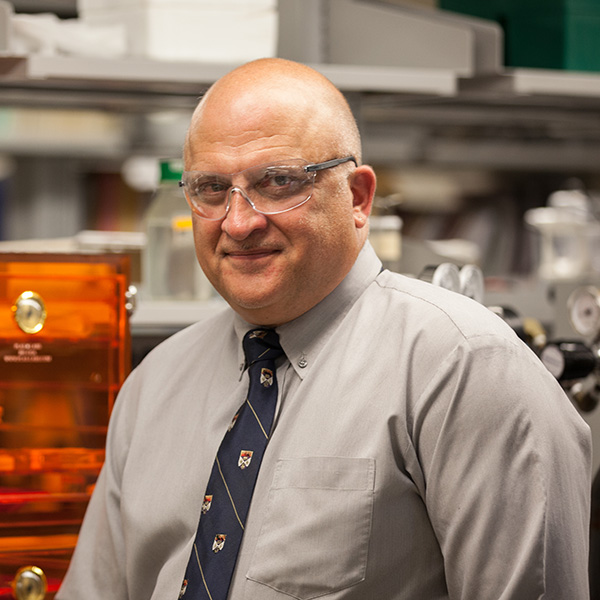
UT: aragausk@utk.edu
ORNL: ragauskasaj@ornl.gov
Phone
UT: 865-974-2421
ORNL: 865-576-0347
Art Ragauskas grew up in Sudbury, Ontario, when the city was void of vegetation, filled with blackened rocks and fishless lakes. It was a place devasted by decades of nickel mining whose smelters were, at one point, the world’s largest point source of sulfur dioxide.
Yet, when his family traveled outside the contaminated area, they found environs where trees and other plants flourished. They fished, camped and enjoyed picking mushrooms and blueberries.
Seeing the dichotomy between the areas taught Ragauskas a keen respect for nature that continues to drive his research and passion for the environment.
“The beauty of nature and its intrinsic balance is a constant reminder of how the circular economy and green technologies could allow humankind to be in balance with nature while addressing our societal needs,” said Ragauskas, now the UT-ORNL Governor’s Chair for Biorefining and interim head of the Tickle College of Engineering (TCE)’s Department of Chemical and Biomolecular Engineering.
A leader in the world of alternative fuels, Ragauskas takes bioresources, such as tree biomass, energy crops, and plant residues, and uses chemistry and biotechnology to convert their basic elements into fuels and other materials. Some of his recent work involves using biomass lignin—inexpensive, abundant plant material—instead of petroleum-based polyols, whose production requires much energy and can harm the environment, to make green polyurethanes and related renewable plastics.
Ragauskas joined UT as a Governor’s Chair in 2014, a program led by the UT-Oak Ridge Innovation Institute, an organization that oversees and encourages targeted UT-ORNL joint research, education and workforce development efforts. Ragauskas also serves in the UT Institute of Agriculture’s Center for Renewable Carbon and the U.S. Energy and Environmental Sciences Directorate, Biosciences Division, at ORNL.
His research has been sponsored by the National Science Foundation, the U.S. Department of Agriculture, and the U.S. Department of Energy and its Advanced Research Projects Agency–Energy.
Ragauskas’ thorough list of honors includes the 2022 Environment Prize from the United Kingdom’s Royal Society of Chemistry, as well as the 2019 Andrew Chase Award and the 2017 Green Process Engineering Award, both from the Institute of Chemical Engineers. In 2021 he was named one of the world’s most highly cited researchers in his field.
Ragauskas, who holds five patents, is a fellow of the Royal Society of Chemistry, the American Association for the Advancement of Science, the Academy Board of the International Academy of Wood Science, and the Technical Association of the Pulp and Paper Industry (TAPPI). He serves on the editorial boards of numerous technical and professional publications.
In 2008-09, Ragauskas was the first Fulbright Distinguished Chair in Alternative Energy Technology. He spent a year at Chalmers University of Technology in Sweden where he taught, did research, and engaged in outreach related to his work on forest biorefinery and new biofuel conversion technologies for lignocellulosics.
Ragauskas earned his bachelor’s degree in chemistry and a doctorate in science from the University of Western Ontario. He was a postdoc fellow at the National Science and Engineering Research Council of Canada and the University of Alberta, Canada.
Before coming to UT, he served on the faculty of Georgia Institute of Technology and the Institute of Paper Science and Technology, and he was an associate research scientist at the National Research Council of Canada.
Ragauskas and his wife, Catherine, have two grown daughters and a son.
Each year, Ragauskas takes a break from work to go fishing with his son.
They’ve gone to remote areas in the Yukon, Quebec, Ontario, and Manitoba—unpopulated places with no roads or infrastructure, no electricity, and no internet, and they pack only a limited amount of gear and supplies.
“We never go back to the same place,” he said. “It challenges us to be able to live off the land.”
